Indonesian community harnesses ‘flower power’ to educate underprivileged children
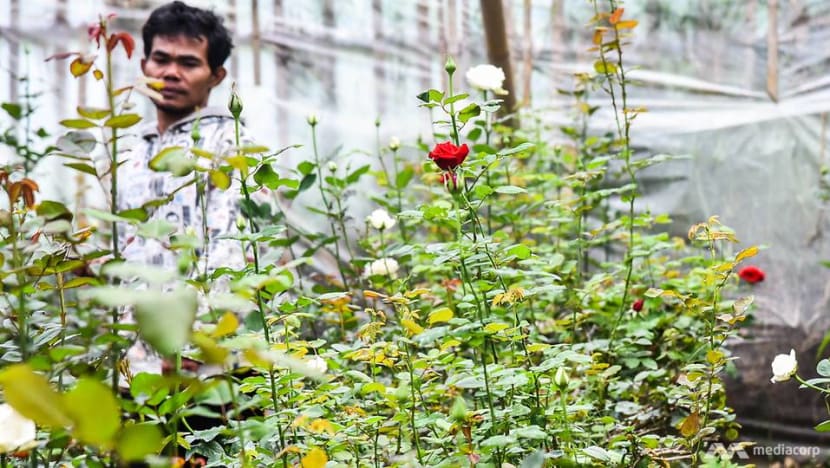
Roses are an unconventional crop to grow in Bandung (Photo: Jack Board)
BANDUNG, Indonesia: The sight of lustrous roses growing in the hills of Indonesia amid rice terraces and banana trees is unusual. The fact that the proceeds from these flowers are directly funding a school for underprivileged rural children is even more rare.
In the misty village of Geger Sunten, on the distant outskirts of Bandung, Indonesia’s fourth-largest city, education has been neglected. This has always been farming land where sons and daughters graduate in the fields, not in the classroom.
“The first time I was here, I realised that many kids did not continue schooling. At the age of 14, they were able to get married. That was how it was in the past,” said Enung Mulyani, the principal and co-founder of the area’s community learning centre, PBKM.
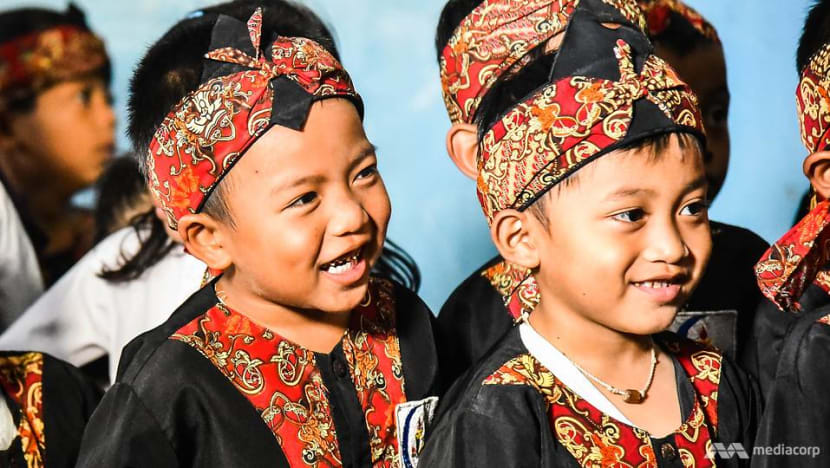
In 2005, Enung and her husband Yusuf set out to change those attitudes, where young people can be prevented from enriching their future through learning because of the working needs of their family.
For the couple, it required an enormous personal sacrifice and toil to simply raise the issue.
“I went to homes personally and asked their children to join PBKM. Some mothers allowed, some did not. Some were angry, some were alright. I was sad that they were angry,” she said.
“Some families could not afford it. Some children were banned from going to school by their parents. Some children preferred to earn money and help the family. There was also no support from parents to pursue education.”
Of course, with farming as the lifeblood of the community, it would take flexibility. School could not simply replace work, even for kids.
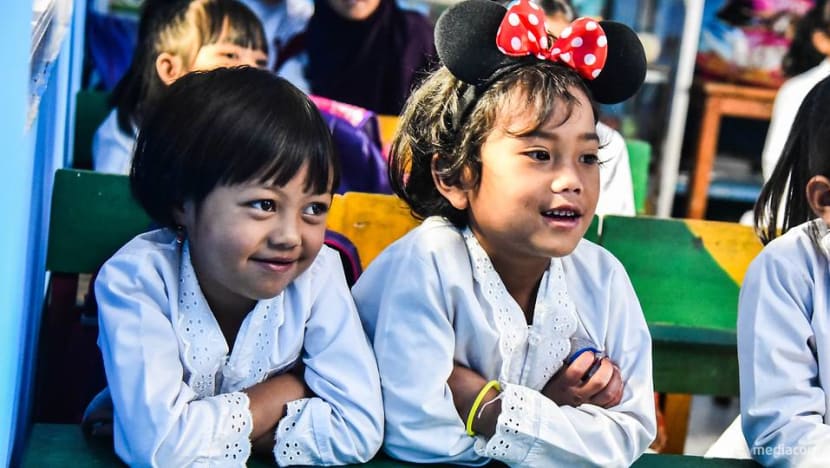
Adaptable class schedules and attendance requirements means students like 18-year-old Nanang Atang have been able to traverse a once impossible path to graduation, while keeping the family afloat by working when needed.
“I choose to go to this school because I don’t have to attend classes every day. There are lessons on farming as well. So in the future, I will be able to practice what I have learned here after graduating,” he said.
Inspired by Yusuf’s passion for education in particular, Nanang feels proud of his efforts even if his next step in life is to still remain working in local agriculture.
“I’m glad that I will be able to go to the next level but I feel sad that I have to leave my friends who have been together with me, shoulder to shoulder, supporting each other in our studies here for a long time.”
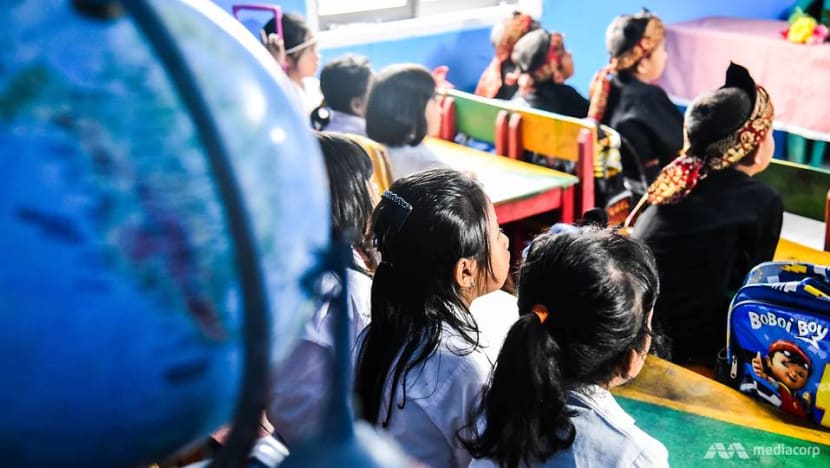
There are now 120 children aged from five years to 18 who have access to an affordable, accessible education. The corridors around the simple classrooms, built gradually over time as space and money allowed, overflow with the sounds of playing, laughing and running.
But funding this endeavour has never been simple – Enung and Yusuf put their entire savings into their dream, even leaving their own child at home while they travelled the country seeking more money.
“I sold my jewellery to build this school. I sold five of my motorcycles. Until today I still have debts incurred financing the materials for this school,” Enung said. The teachers at the school are volunteers, forsaking a regular paid job and travelling often long distances to take their classes.
The school’s tenuous financial situation was made worse when Yusuf died late last year. His premature death ripped a hole in Enung’s life and tested her spirit. He was her foundation, a major driver of the program and a motivating energy for the children.
She despaired but has carried on – still emotionally distraught by the loss.

One of Yusuf’s legacies was to build up the unconventional funding method for the school – roses. It is not a crop that is normally grown in this part of Indonesia and came at the end of lengthy experimentation for a non labour-intensive, profitable option.
Now, 40 per cent of the proceeds from the roses go into the school’s operations; the rest is used to keep the farm going.
Rukma Setiabudi is the farm’s custodian. His daily workplace is in the perfume-filled greenhouses blooming with red, white, yellow and pink flowers that he meticulously cultivates.
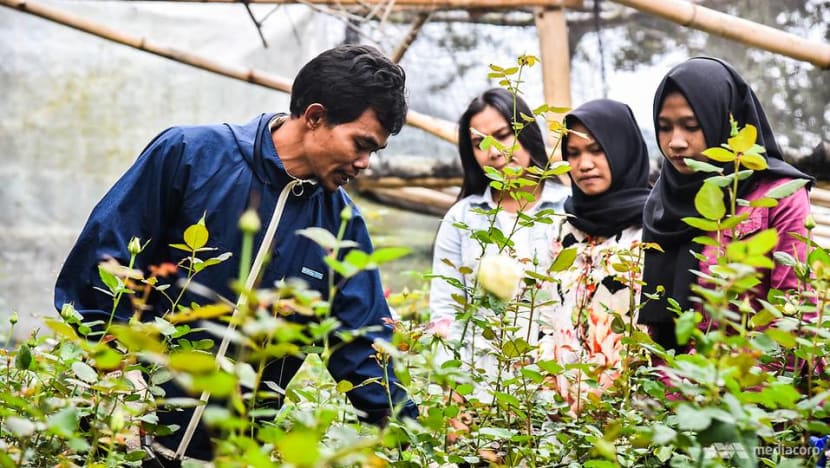
He can harvest between 50 and 60 bundles of roses each week, with the Grade A bunches fetching about US$25 at local markets. Rose farming is more profitable, he explains, than regular vegetable farming that needs crops to be re-planted regularly. A rose bush here will produce flowers for more than five years.
There are also the less tangible benefits of spending time around beautiful blooms. “I’m very happy farming roses because each time I’m here, I see the beauty of the roses and it relieves my stress,” he said.
Rukma has also taken on duties at PBKM teaching students farming techniques, which he himself learned from Yusuf.
“I’m very proud that I’m able to gain more knowledge as well as sharing my knowledge and applying it with the students. Education is very useful for not only kids but for everyone because learning goes a long way in life.”
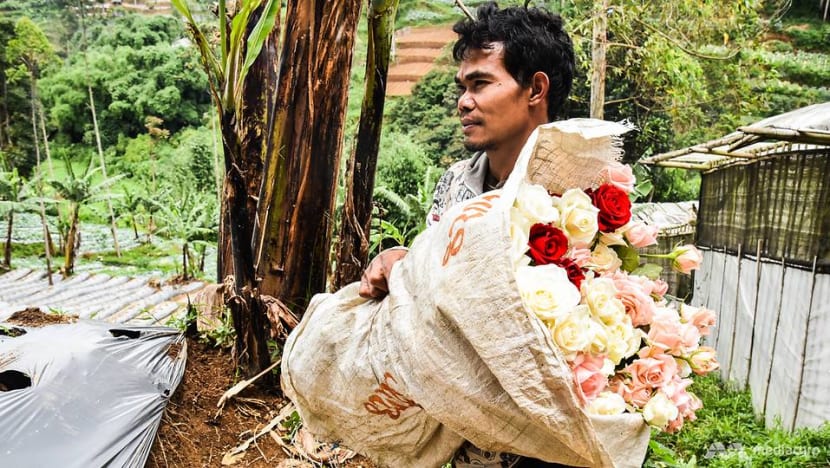
It is pure dogged determination that has started to change the prospects of an entire community and hundreds of children here now have access to the education they need.
At the heart of this success has been agriculture, the ever-present and quintessential force in this part of the world. Attitudes about the land and learning are changing and the outcomes for the children who can benefit are already clear to see.
“Starting a school is not easy. Never easy and never simple. I am not a teacher. But I have a wish in my heart. I do it as an act of service,” Enung said tearfully.
“I am satisfied that all the sacrifices were worth it and you can see the results today. I am very proud.”
For more on this and other projects around Southeast Asia, watch Tapestry: The Heart of ASEAN on Toggle.












